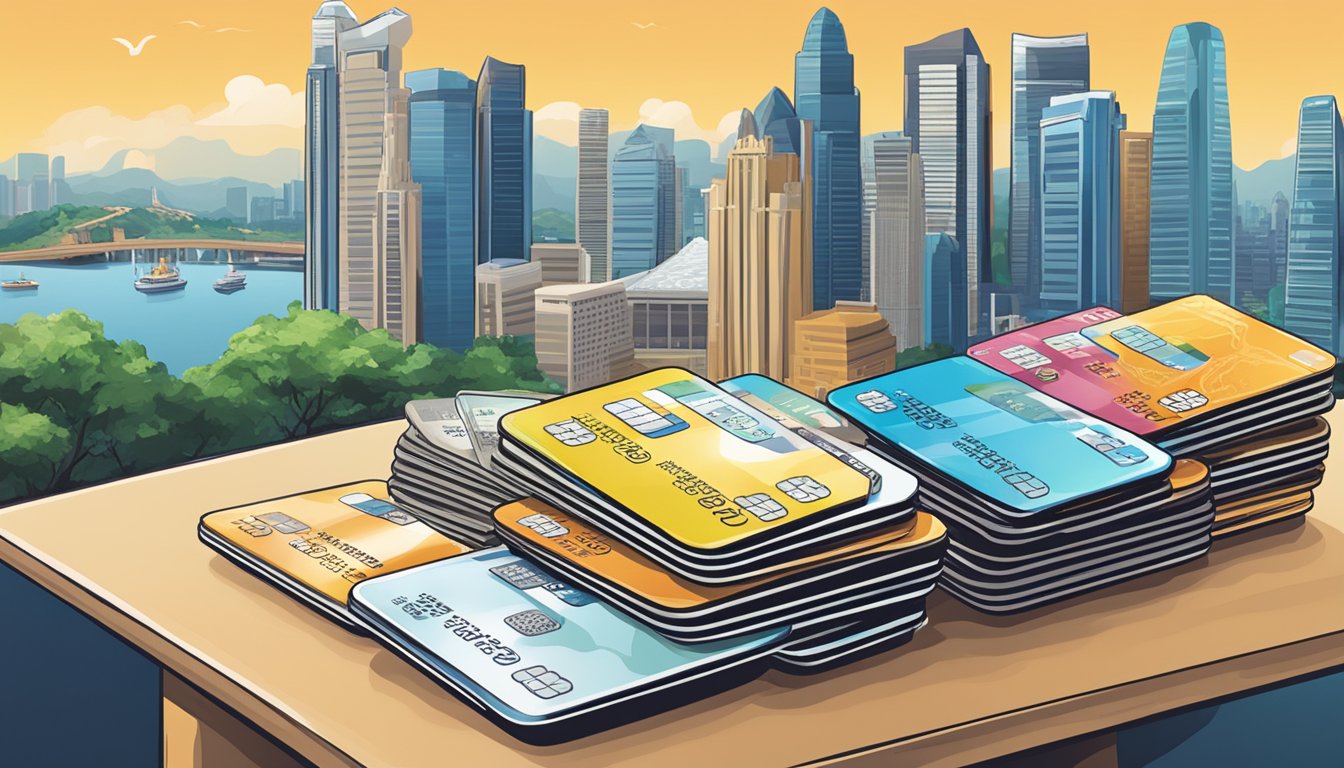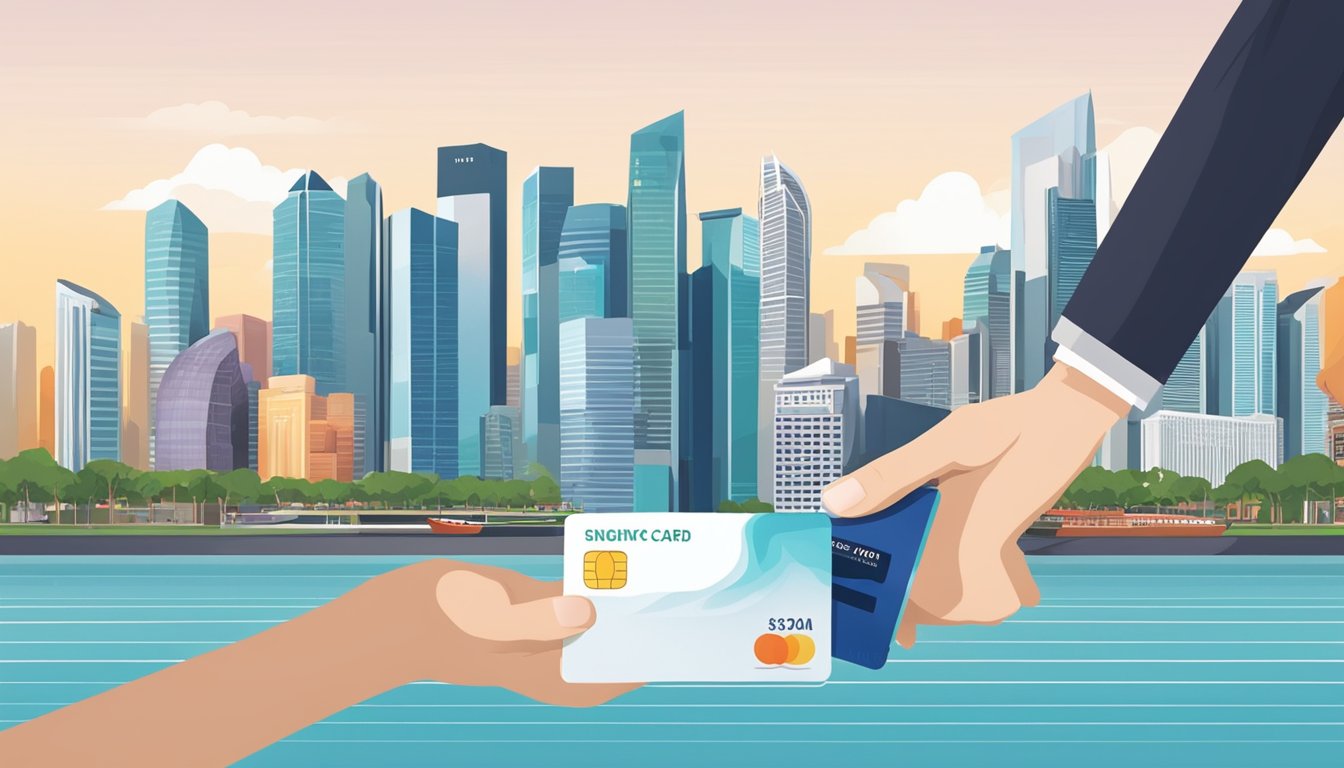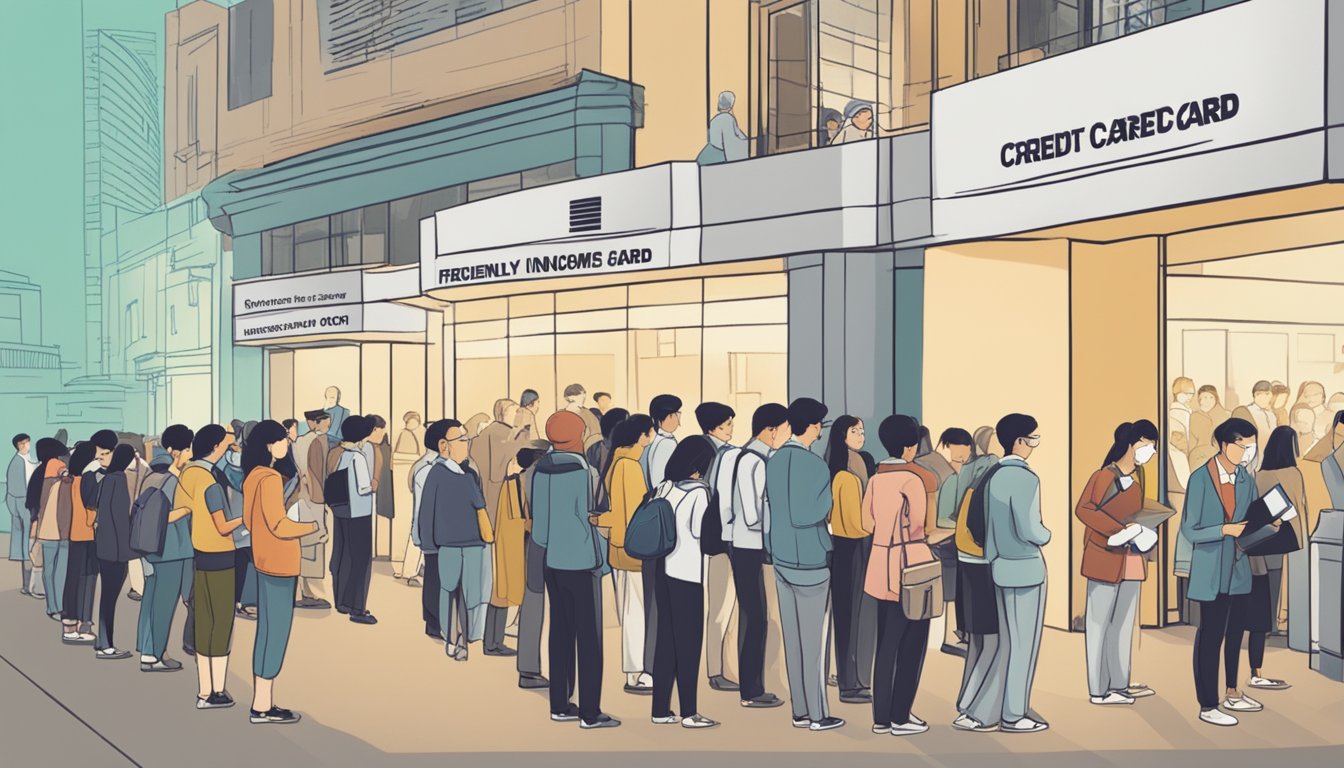If you are a low-income earner in Singapore, you may feel that getting a credit card is out of reach. However, there are options available to you that can help you build your credit score and access the benefits of credit cards. In this article, we will explore the world of low-income credit cards in Singapore and help you understand how to choose the right one for your needs.

Understanding credit cards in Singapore can be a daunting task, especially if you are new to the financial world. However, credit cards can be a valuable tool for managing your finances, building your credit score, and accessing rewards and benefits. By choosing the right credit card for your needs, you can take advantage of these benefits and improve your financial situation.
Exclusive student credit card options are available for those who are still studying and have lower income requirements. These cards can help students build their credit score and access rewards and benefits while they are still in school. By taking advantage of these options, students can set themselves up for financial success in the future.
Key Takeaways
- Low-income earners in Singapore can still access credit cards with the right options.
- Understanding credit cards and their benefits is key to finding the right card for your needs.
- Exclusive student credit card options can help students build their credit score and access rewards and benefits.
Understanding Credit Cards in Singapore

If you’re looking for a credit card in Singapore, it’s important to understand the role of the Monetary Authority of Singapore (MAS) and the income requirements you need to meet.
The Role of the Monetary Authority of Singapore (MAS)
The Monetary Authority of Singapore (MAS) is Singapore’s central bank and financial regulatory authority. It is responsible for ensuring the stability of Singapore’s financial system, including the regulation of credit cards. MAS mandates that credit card issuers must comply with specific guidelines to ensure responsible lending practices. This includes setting income requirements for credit cards.
Income Requirements for Credit Cards
To obtain a credit card in Singapore, you must meet specific income requirements set by the MAS. Currently, MAS mandates that you must meet at least one of the following conditions:
- Annual income of at least $30,000
- Total net personal assets of at least $2 million
- Total net financial assets of at least $1 million
If you’re a low-income earner, meeting the minimum income requirement may be difficult. However, there are credit cards available that cater to low-income earners. These credit cards usually have lower income requirements and offer benefits that are more suited to those with lower incomes.
When comparing different low-income credit card options, it’s important to identify your spending habits and preferred rewards (if any). You should also compare the income requirement, annual fees, and rewards or rebate benefits (don’t forget to check what the caps are).
Overall, understanding the role of the MAS and the income requirements for credit cards in Singapore is essential if you’re looking for a credit card that suits your needs and budget.
Exclusive Student Credit Card Options

As a student in Singapore, you might be struggling to find a credit card that suits your needs. Many credit cards require a minimum income, which can be a challenge for students who are not working full-time. Fortunately, there are some great credit card options available for students with little to no income.
DBS LiveFresh Student Card
If you are a student at NIE, LASALLE, or NAFA, the DBS LiveFresh Student Card might be the perfect option for you. This credit card has no minimum income requirement, making it accessible to students who are not working full-time. With this card, you can enjoy up to 5% cashback on online shopping, contactless payments, and Visa payWave transactions. You can also get up to 10% cashback on dining, entertainment, and travel expenses.
Maybank eVibes Card
The Maybank eVibes Card is another great option for students in Singapore. This card has no minimum income requirement and is available to students aged 18 and above. With this card, you can enjoy up to 8% cashback on dining, entertainment, and transportation expenses. You can also earn 1% cashback on all other retail transactions.
CIMB AWESOME Card
The CIMB AWESOME Card is a credit card that is designed specifically for students in Singapore. This card has no minimum income requirement and is available to students aged 18 and above. With this card, you can enjoy up to 1% cashback on all retail transactions, with no limit on the amount of cashback you can earn. You can also get up to 10% cashback on dining, entertainment, and online shopping expenses.
Overall, these student credit cards are great options for students who are looking for a credit card without income requirements. With these cards, you can enjoy cashback rewards on your everyday expenses, making it easier to manage your finances as a student. So, if you’re a student in Singapore, be sure to check out these credit card options to see if they’re right for you.
Benefits and Rewards for Low-Income Earners

If you are a low-income earner in Singapore, you might think that credit cards are not for you. However, many credit card providers offer benefits and rewards that can be helpful for those on a tight budget. Here are some of the benefits and rewards that you can enjoy with a low-income credit card in Singapore.
Cashback and Deals
Cashback and deals are a great way to save money when you spend. Many credit cards offer cashback on specific spending categories, such as dining, entertainment, online shopping, and telco bills. Some credit cards also offer cashback on all spending categories, which can be helpful if you have a diverse range of spending habits.
In addition to cashback, many credit cards also offer deals and discounts at specific merchants. These deals can range from rotating promotions to eco-friendly cashback at green merchants. By taking advantage of these deals, you can save money on your everyday expenses.
Eco-Friendly Rewards
If you are interested in eco-friendly living, you might be interested in credit cards that offer eco-friendly rewards. These rewards can include cashback or credit card points for spending at eco-friendly merchants or for making eco-friendly choices, such as using public transport or reducing your carbon footprint.
By using a credit card with eco-friendly rewards, you can not only save money but also make a positive impact on the environment.
Financial Management and Credit Cards

Managing your finances can be challenging, especially when you have a low income. However, credit cards can offer a convenient way to access short-term funds and build your credit score. Here’s what you need to know about managing your finances with credit cards.
Understanding Annual Fees
Credit cards often come with annual fees, which can range from $0 to hundreds of dollars per year. While some credit cards offer rewards or cashback that can offset the cost of the annual fee, others may not be worth the expense. When choosing a credit card, it’s important to consider the annual fee and whether the rewards or benefits are worth the cost.
Credit Limits and Interest Rates
Credit cards also come with credit limits and interest rates, which can affect your ability to manage your finances. The credit limit is the maximum amount you can spend on your credit card, while the interest rate is the cost of borrowing money. When using a credit card, it’s important to stay within your credit limit and pay off your balance in full each month to avoid high interest charges.
It’s also important to compare interest rates and credit limits when choosing a credit card. Some credit cards offer lower interest rates or higher credit limits, which can be beneficial if you need to borrow money or carry a balance.
In summary, credit cards can be a valuable tool for managing your finances, but it’s important to choose the right card and use it responsibly. By understanding annual fees, credit limits, and interest rates, you can make informed decisions about your financial future and work towards financial independence.
How to Choose the Right Credit Card

If you’re a low-income earner in Singapore, choosing the right credit card can be a daunting task. With so many options available, it can be difficult to determine which card is best suited to your needs. However, by assessing your personal spending habits and comparing bank offers and restrictions, you can find a card that works for you.
Assessing Personal Spending Habits
Before choosing a credit card, it’s important to assess your personal spending habits. This will help you determine which card is best suited to your needs. If you tend to spend a lot on groceries and dining out, for example, you may want to look for a card that offers cashback or rewards on these purchases. On the other hand, if you travel frequently, a card that offers air miles or travel rewards may be more beneficial.
Comparing Bank Offers and Restrictions
Once you’ve assessed your personal spending habits, it’s time to compare bank offers and restrictions. Different banks offer different types of credit cards, each with their own set of benefits and restrictions. For example, DBS offers the POSB Everyday Card, which is a great option for low-income earners. This card offers cashback on daily essentials such as groceries, petrol, and dining. CIMB, on the other hand, offers the CIMB Platinum Mastercard, which is a good option for those who travel frequently. This card offers air miles and travel rewards.
When comparing bank offers, it’s important to look at the restrictions and eligibility requirements. For example, Maybank offers the Maybank eVibes Card, which is designed for students and young adults. However, this card has a minimum income requirement of $18,000 per year. It’s important to ensure that you meet the eligibility requirements before applying for a card.
In conclusion, choosing the right credit card as a low-income earner in Singapore can be challenging, but it’s not impossible. By assessing your personal spending habits and comparing bank offers and restrictions, you can find a card that works for you. Remember to look at the eligibility requirements and restrictions before applying for a card, and choose a card that aligns with your needs and goals.
Frequently Asked Questions

How can you snag a credit card in Singapore on a modest salary?
If you are earning a modest salary, you can still apply for a credit card in Singapore. Some credit cards have reduced income requirements, while others have no minimum income requirement for students. You can also consider applying for a credit card from a bank that you have an existing relationship with, such as your salary account or savings account.
What’s the minimum wage required to get your hands on a credit card here in Singapore?
There is no minimum wage required to get a credit card in Singapore. However, you must meet the bank’s income requirements, which vary depending on the card. Typically, credit cards require an annual income of at least S$30,000 for Singaporean citizens and permanent residents, and S$60,000 for foreigners with a valid work pass.
Are there any credit card gems for those earning a lower income in Singapore?
Yes, there are credit cards available for those earning a lower income in Singapore. Some credit cards have lower income requirements, while others have no minimum income requirement for students. The Maybank eVibes Card, for example, has an annual income limit of S$30,000 for applicants.
Could you tell me if foreigners with lower incomes can obtain credit cards in Singapore?
Yes, foreigners with lower incomes can obtain credit cards in Singapore. However, they must meet the bank’s income requirements, which are typically higher than those for Singaporean citizens and permanent residents. Foreigners with a valid work pass must have an annual income of at least S$60,000 to apply for most credit cards.
What options are available for those with less-than-stellar credit seeking a credit card in Singapore?
If you have less-than-stellar credit, you may still be able to obtain a credit card in Singapore. However, your options may be limited. You can consider applying for a secured credit card, which requires a security deposit. Some banks also offer credit cards for those with poor credit scores, but they may have higher interest rates and fees.
Is it possible to secure a credit card without any income in Singapore?
No, it is not possible to secure a credit card without any income in Singapore. All credit card applications require proof of income, such as payslips or tax returns. If you do not have a regular source of income, you may be able to apply for a secured credit card or consider getting a co-signer for your application.




